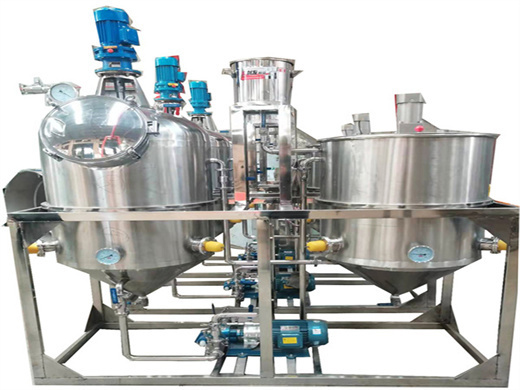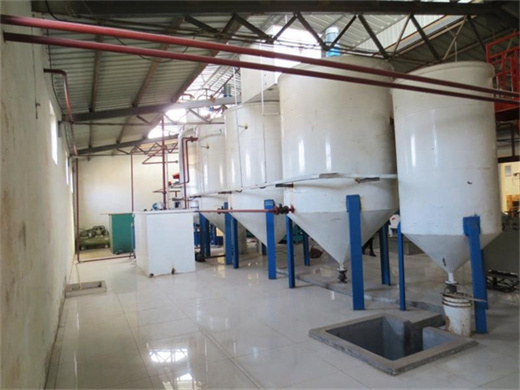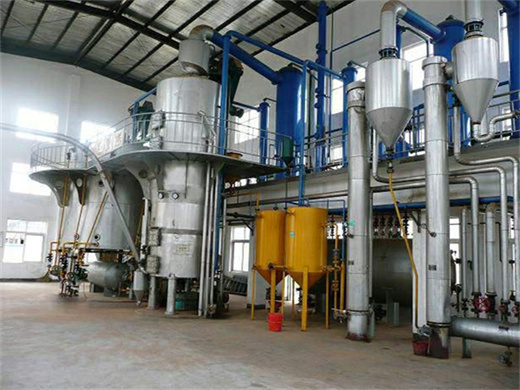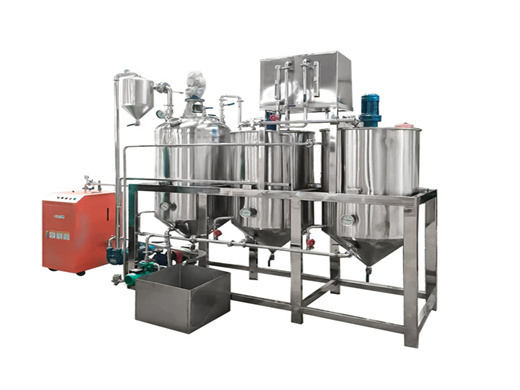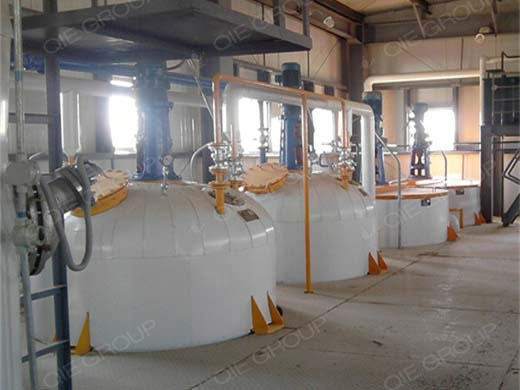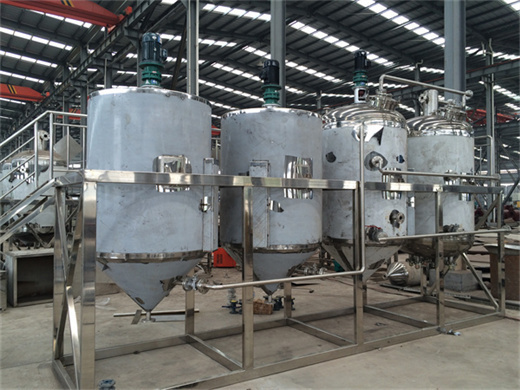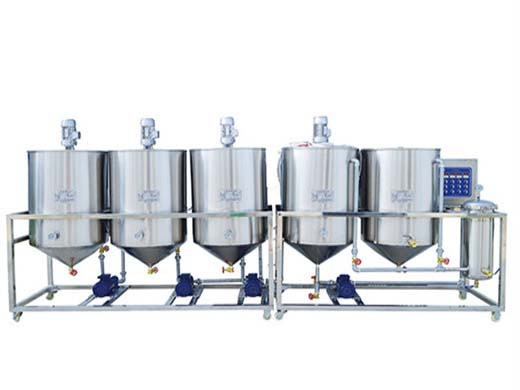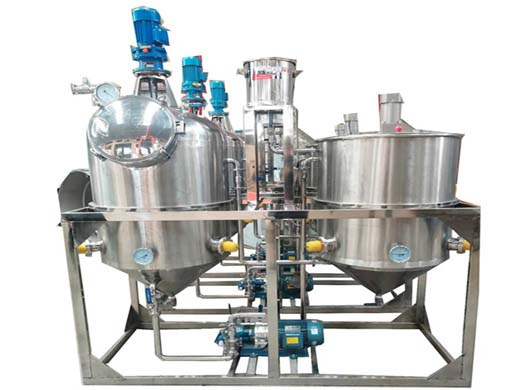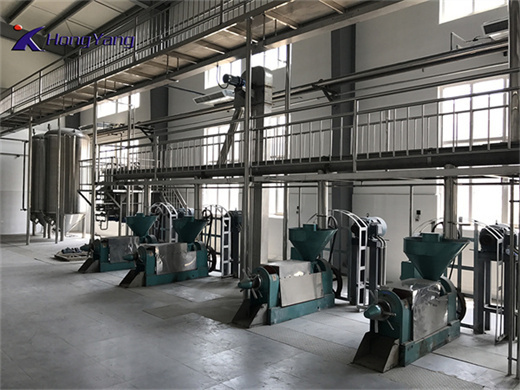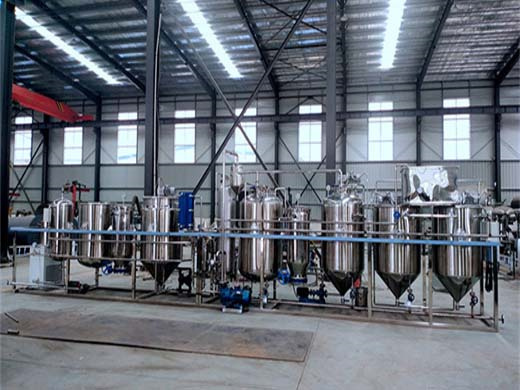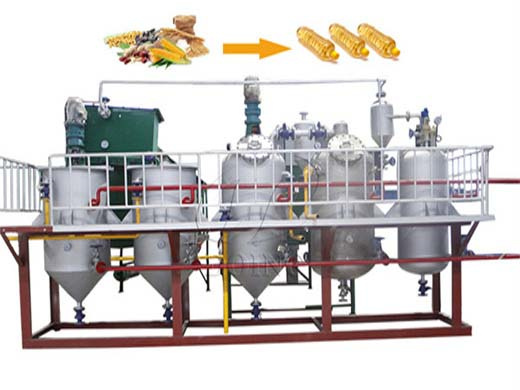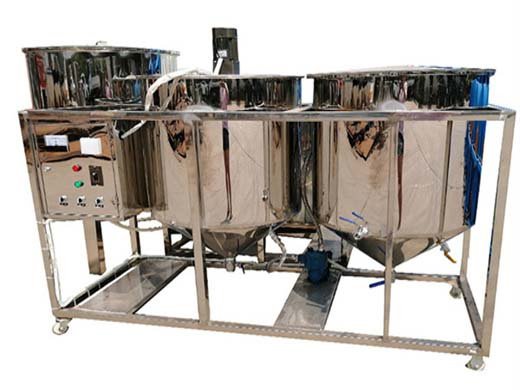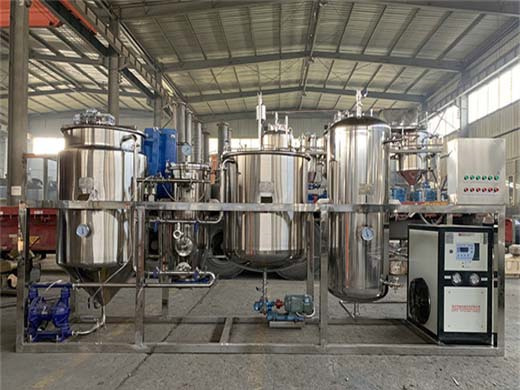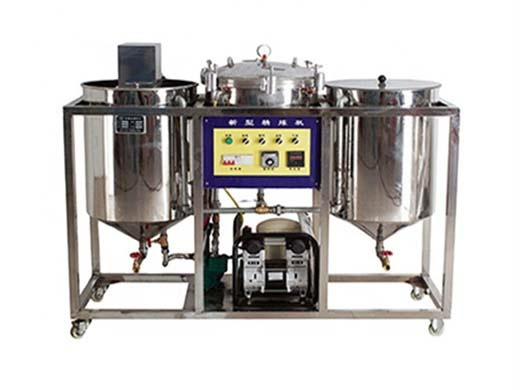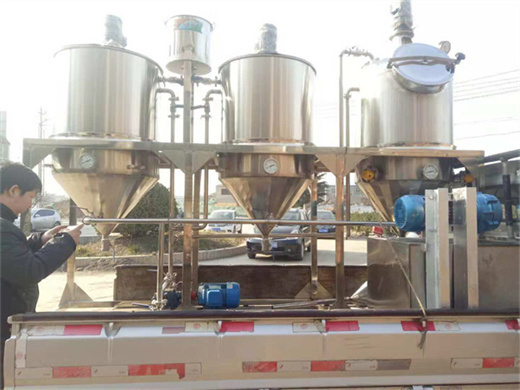Neutralization - Edible Oil Production
Free oil acid is a factor that determines the amount, density and excess of the caustic soda for its minimum fat loss. Neutralization treatment includes blending (caustic and oil), centrifugal separation (soapstock), holding (washing water), drying and bleaching.
Oil neutralization is another step in the edible oil refining process. Oil neutralization is also known as deacidification. It neutralizes fatty free acids in the oil using caustic soda, thereby converting the acids into soaps. These soaps are easily removed by decantation or by centrifugal force.
Neutralization Process, Oil Neutralization, Crude Oil
Second Stage of Vegetable Oil Refining Process. Neutralization or simply Neutralizing is the second process in the vegetable oil refining which commences after degumming completion. The feedstock is taken into the Neutralizers where the heating temperature range is kept at 55 C to 70 C depending on the quality of crude oil.
Bleaching is the term given to describe the adsorptive cleansing process associated with edible oil refining. This process may involve acid pretreatment, introduction of and a retention period with a bleaching agent and removal of the clay and absorbed materials.
What is Edible Oil Refining Process for Oil Mill Plant
The crude oil obtained from oil mill plants and solvent plants get refined in the oil refinery plants before it is utilized directly. The oil through the oil refining process gives color uniformity and appealing quality to the oil by removing unpleasant smell and undesirable factors from the oil.
KMEC is a leading designer, manufacturer and exporter of the edible oil refining plants in both continuous type units and batch type units.Our high-tech refinery plant finds an extensive application for all types of crude oil like cotton seed, soyabean, sunflower, palm oil, rice bran oil etc. Edible Oil Refining Process
What is the neutralization process of edible oil?_Tech
The neutralization process of edible oil is a part of whole edible oil refinery process, which is also called the deacidification process of edible oil. But it belongs to chemical deacidification method, using alkali to react with FFA, and then get so
Dewaxing may be the fifth process considered for the edible oil refining. It is not a compulsory process and it is not required for every type of oil. Dewaxing is performed only for high wax containing oils such as Sunflower Oil, Rice Bran Oil, Corn Oil etc.
EDIBLE OILS AND FATS REFINING
This refining process can treat almost any kind of edible oils and fats but it involves the produc-ALKALI tion of soapstocks and has a refined oil yield lower than the one physically obtainable even if of more stable quality in the time. The standard steps in this refining process are: - NEUTRALIZATION
Physical refining is to remove free fatty acids by steam distillation. Chemical refining is by neutralizing the FFA with alkali, which is often caustic soda, the chemical reaction creates soap stock, which settles down to the bottom of the tank and removed or separated by centrifugation. This process is called neutralization, or alkali refining.
Refining of Edible Oils – US – Silverson Machines
Process temperature is typically in the range of 120 – 160ºF (50 – 70ºC). Neutralization process temperature may be higher, up to 200ºF (95ºC). The strength of the sodium hydroxide solution varies according to the acid content and oil type.
Edible oil refinery plant and edible oil refining process
Edible oil refinery plant and edible oil refining process . Edible oil refining is a process to remove impurities that are contained in crude oil obtained either from expellers or solvent extraction plant, and improve the functionality of the oils.
BASICS OIL REFINING
Edible oils Oil content World production % million ton/annum Seed oils Soybean 18 48 Rapeseed 40 27Current refining process – introduced in 1900 Introduction of refining due to:•Combined degumming and neutralization in one line will reduce all types of phospholipids to below 5 ppm P.
Refining of Edible Oils – US – Silverson Machines
Process temperature is typically in the range of 120 – 160ºF (50 – 70ºC). Neutralization process temperature may be higher, up to 200ºF (95ºC). The strength of the sodium hydroxide solution varies according to the acid content and oil type.
Edible Oil Refining Processes – Degumming / Neutralization
The oil is dissolved in hexane in miscella refining, which is why the separators which separate the soapstock from the neutralization process are blanketed with inert gas. The refined miscella then reenters the extraction plant stripping system for removal of remaining hexane.
Oil Neutralization Plant at Rs 20000000 /set | Oil
Oil Neutralization Plant – Buy Oil Refinery Plant at best price of Rs 20000000 /set from Brissun Technologies Private Limited. Also find here related product comparison. | ID: 10425553812
Sunflower Oil Refining Process | Sunflower Oil Refinery
Chemical reaction involves in Neutralization process is mentioned below. Bleaching Section of Sunflower Oil Refining Process. The bleaching of Sunflower oil is an essential part of the refining process of crude oils and fats after degumming / Neutralization. Originally the bleaching was only used to remove the color.
Edible/Vegetable/Cooking Oil Degumming/Neutralization Process
Edible/Vegetable/Cooking Oil Degumming/Neutralization Process DVC Process TechnologiesOne of the key steps in the refining process is the elimination of impurities from crude vegetable oils
Edible oil processing
Process Description of Edible Oil Refinery : For refining the edible oil, there are three basic processes in the refinery. • First process is neutralizing the oil in the neutralizer to remove the Free Fatty Acids (FFA) by adding caustic soda. • Oil is heated up to about 60°C by thermic fluid coils and oil is stirred by stirrer.
What is physically refining of edible oils?
Edible/vegetable oil refining is a step by step process. Refining removes phospholipids, pigments, off-flavors, free fatty acids and other impurities in the crude oil. The entire vegetable oil refinery plant process comprises degumming/neutralizat…
Current trends in the alkaline neutralization of edible oils
Current trends in the alkaline neutralization of edible oils Citation for published version (APA):to develop methods to reduce the losses occurring in the alkaline neutralization of edible oils. At the outset, emphasis was to be placed on process development, andThe next step of the refining process is neutralization. During this
Refining of Edible oils: Edible Oil Processing
Two processes have been developed for the refining of edible oils and fats, i.e. physical and chemical refining; the decision which process to use depends on the types and qualities of the crude oil to be processed (Figure 1).The names physical and chemical refining come from the process technology used to remove the Free Fatty Acids (FFA) that are responsible for the oil acidity.
Turnkey Edible Oil Refinery Line All Capacities
Generally speaking, after oil pressing we can get the crude edible oil, as it has different kinds of impurities and easy to oxidize; as a result, it cannot be stored for long time. To avoid oxidization of crude edible oil and get rid of impurities or hazardous substances, you need to set up an oil refinery line for your oil plant.
Alfa Laval – Refining
50 years of innovation in palm oil. From milling, waste management, refinery to service – Alfa Laval has the right process solution for you. Dr. Bent Sarup, VP Edible Oil Systems, also gave us a glimpse of what Alfa Laval is currently working on – ZeroGE™ – a revolutionary technology aimed at creating a more sustainable future for palm oil.
